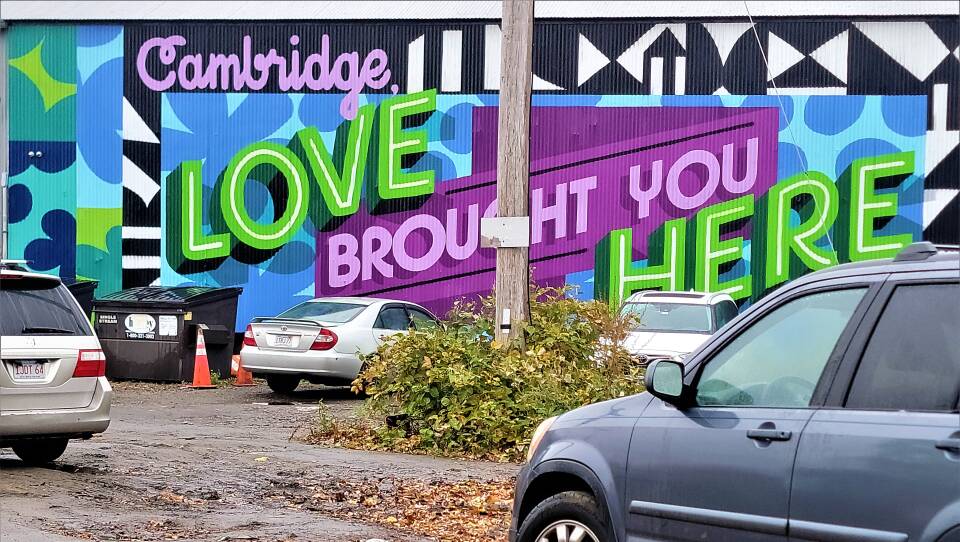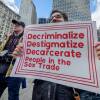Audrey Morrissey and Michael Cox both describe themselves as local anti-trafficking advocates who want the best for people exploited in the country’s multi-billion commercial sex trade.
But when the U.S. Attorney’s Office on Wednesday announced charges against the alleged operators of an alleged high-end prostitution ring that connected Massachusetts to Virginia, the two advocates had completely different reactions.
Morrissey told GBH News that she’s frustrated that federal prosecutors declined to name alleged sex buyers who they said included an array of powerful men, including doctors, lawyers and elected officials.
“Why are their names a secret?” asked Morrissey, co-executive director of the Boston-based nonprofit My Life My Choice that works with exploited and trafficked youth. “We’re talking about human bodies, and they should be held accountable. No one has the right to buy and sell people.”
Cox, for his part, says the federal government described what appeared to him as a “well-done, sex-for-fee service” that should have been left alone.
“It was a waste of time and energy on the government’s part,” said Cox, executive director of Black and Pink Massachusetts, an LGBTQ-oriented prison abolition organization also based in Boston. “It looked like [the organizers] were vetting clients appropriately. It looked like they were supporting the sex workers and doing everything possible to keep everybody safe in this situation.”
Morrissey and Cox were both talking about charges filed against three people connected to what federal authorities are calling a “sophisticated” prostitution ring with locations in Cambridge and Watertown. Buyers were described in a detailed affidavit as paying between $350 and $600 an hour for sexual services from Asian women who would travel between the sites.
Acting U.S. Attorney Joshua Levy said the charges were just the beginning of an investigation that should provide more information over time.
“Today’s charges should make one thing clear: No one is above the law,” Levy said in a Wednesday press conference. “It doesn’t matter where you live, doesn’t matter what your job is, how much money you have. Engaging in commercial sex rings, as alleged in this indictment, is illegal.”
Donna Gavin, former commander of the Human Trafficking Unit in the Boston Police Department, told GBH News that the investigation is “a fine example of how law enforcement and prosecutors can build a strong case when it's a priority.”
She said cases like this can take a long time because they are complicated, involving different jurisdictions and law enforcement agencies. “It’s difficult to infiltrate these criminal enterprises,” she said. “Victims nearly never self-report.”
While this is a federal case, Cox and Morrissey’s reactions to the news reflect a deep divide in anti-trafficking circles related to what to do about the illicit commercial sex industry.
The debate is reflected in competing bills in the State House — including legislation supported by Morrissey that would decriminalize sex work but still hold buyers and exploiters accountable. A similar bill was approved in Maine last summer, the first in the nation.
Cox supports legislation that would decriminalize the commercial sex industry altogether.
Morrissey and her group argue that a full decriminalization of prostitution would hurt vulnerable people by expanding the sex trade. She says men who have bought sex say the fear of getting caught could affect their decisions. “If people didn’t buy people, we would not have exploiters selling people,” she said. “So let’s call it what it is.”

Joel Ziff, a psychologist in Newton who works mainly with clients who are addicted to sex, said that, since prosecutors have generally focused on the sellers of sex, some buyers felt the transactions would never come back to haunt them. Even while purportedly providing their full names and credit card information to the sellers, Ziff said, they may have felt a sense of immunity.
He said his practice is “filled with very successful men who are CEOs, high-level consultants, politicians, doctors and attorneys.” Men who crave commercial sex take great risks, he said — but don’t always seem to accept that reality until it is too late.
“Often somebody starts with pornography and then maybe they start to go to commercial sex sites, and you have this feeling of anonymity and a distorted sense that you’re anonymous, when you’re not,” he said.
But Cox’s group argues that criminalizing sex-for-money actually makes it more dangerous for sex workers. He also maintains that not all sex workers are exploited.
“There is this notion that sex workers have no autonomy and every instance of commercial sex is a form of exploitation,” he said. “This erases the lived experiences and agency of so many who choose to earn a living with consensual sex work.”
Levy said the public should be aware that prostitution and trafficking are much more prevalent than people think. He said likely hundreds of buyers were involved in this prostitution ring.
“Today is one more reminder that this type of conduct is happening in our neighborhoods,” he said. “And we are dedicating the resources to make sure that it stops.”









